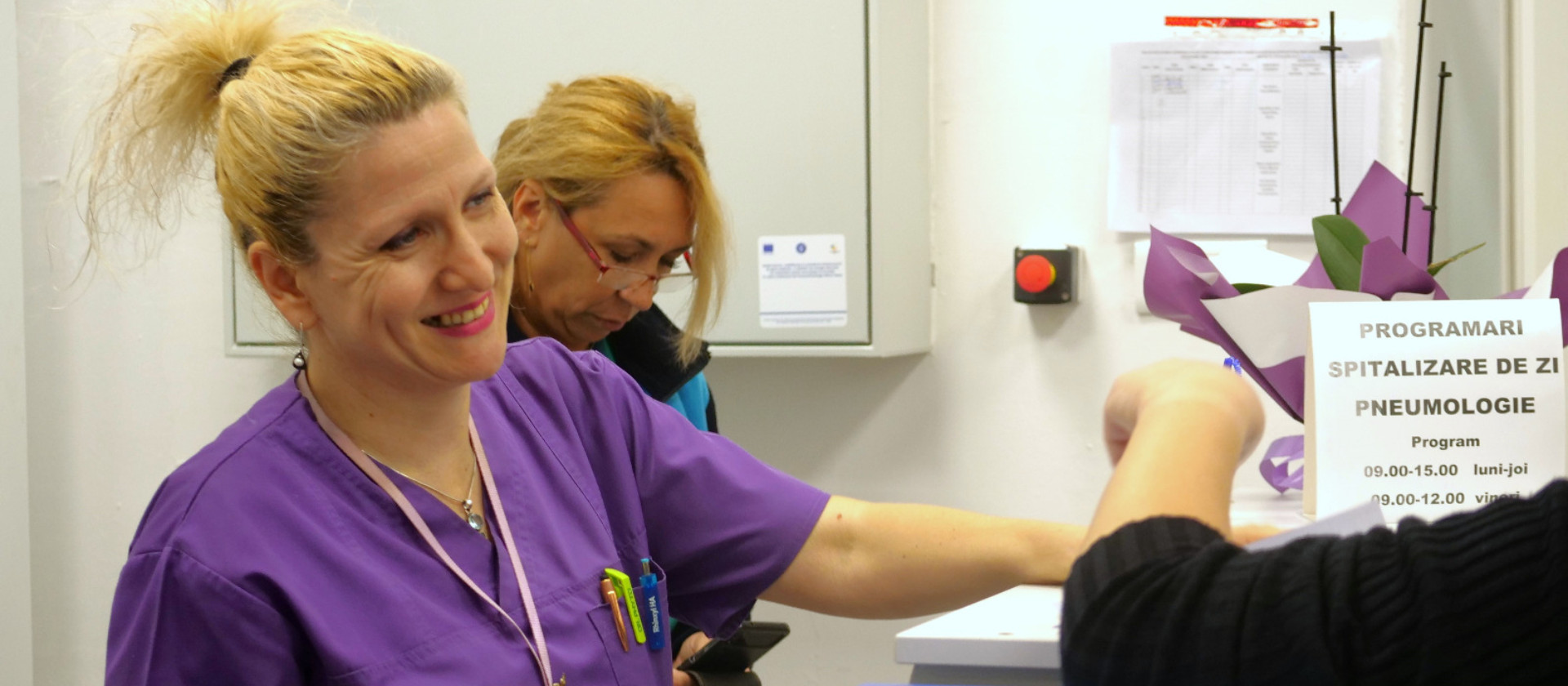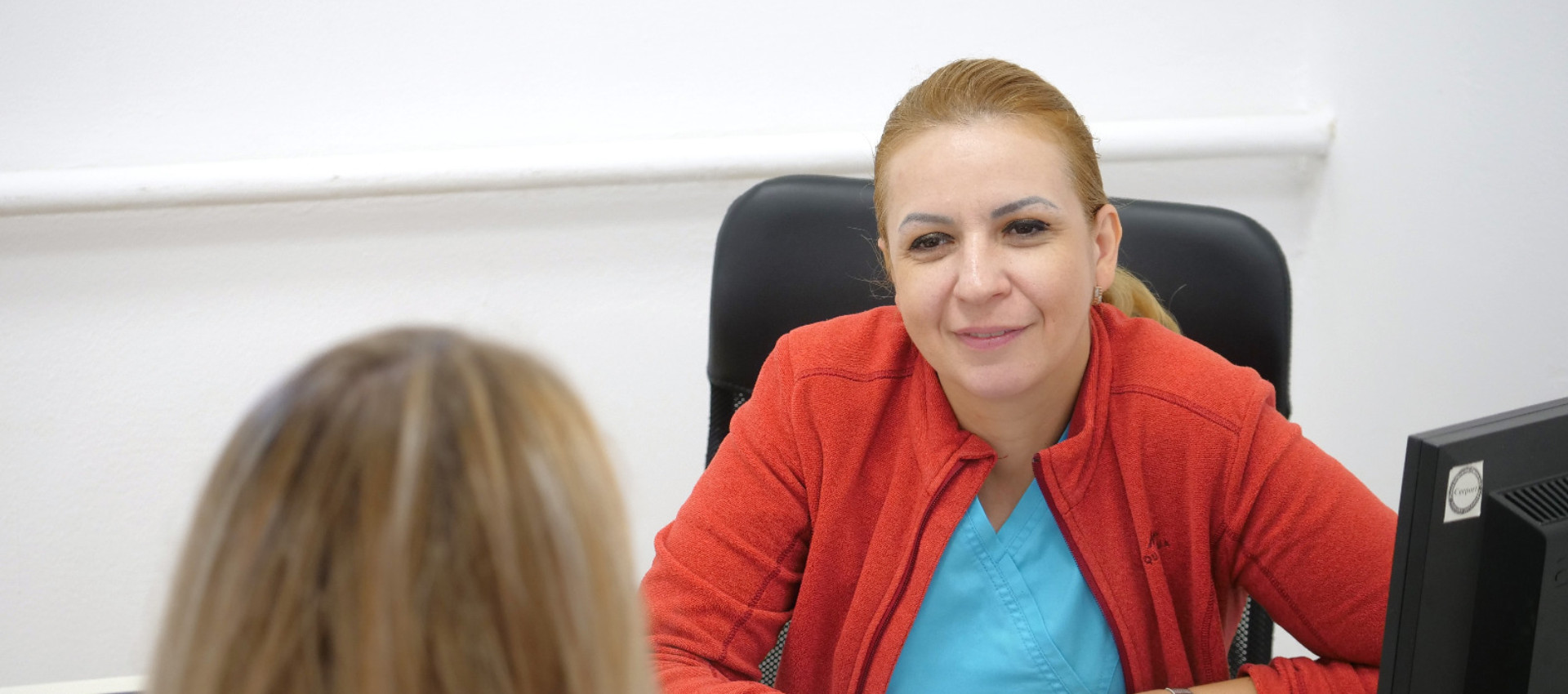Understanding the challenges that doctors and nurses face in their work environment is crucial for retaining a strong and resilient health workforce in the European Region. As data are critical for this purpose, WHO/Europe has launched a first-of-its-kind survey on the mental health and well-being of health-care professionals across the 27 European Union Member States, Iceland and Norway.
Feeding into this survey, the WHO Country Office in Romania held a number of workshops to equip frontline health-care workers with practical tools to manage stress, improve communication, and foster a healthier work–life balance – including one of WHO’s scalable psychological interventions, “Doing What Matters in Times of Stress”.
Held between February and May 2024 across 4 major cities in Romania – Bucharest, Timișoara, Sibiu, and Iași– the workshops included a diverse group of doctors, nurses, administrative personnel, and clinical staff from a variety of medical fields, including paediatrics, pulmonology, cardiology, surgery, and neurology.
Guided by WHO experts in mental health and psychological support, participants came together to learn strategies to help them to cope in high-pressure environments in a professional capacity, but also in their personal lives. The workshops empowered the participants to manage stress more effectively, creating a ripple effect that benefits both the caregivers and the patients they serve.
Dr Silvia Gatscher, Health Operations Manager at the WHO Country Office in Romania, emphasized the importance of mental health initiatives among health-care workers: “Pressure and stress are inherent to work in health-care services, but while health professionals are trained to cope with them, increased workloads, complex health conditions and the need to adapt quickly to new roles in times of crisis can take their toll. We are working closely with health partners to ensure that health workers are supported.”
Encountering stressful situations with grounded attitudes
Stress and burnout among health-care professionals can often result in emotional exhaustion, reduced empathy, and a sense of detachment from their work. They may feel overwhelmed, drained, and disengaged, which affects their overall well-being and the quality of the care they provide.
The workshops aimed to build resilience, which is crucial for health and care staff, as it enables them to recover from setbacks, handle stress, and maintain a strong sense of purpose and dedication to their patients and profession.
Many participants expressed that the workshops were a timely reminder of the importance of managing stress and maintaining a good work–life balance, while offering practical techniques to address burnout that could be easily integrated into their daily routines in the demanding environments of hospitals and health-care facilities.

The workshop helped me realize that I was already using some of these techniques intuitively. Now, I apply them consciously, and I’ve seen changes in how I communicate with patients,” notes Roxana Anastase, Chief Medical Registrar at the “Marius Nasta” National Institute of Tuberculosis and Lung Diseases in Bucharest. “Just recently, a patient told me, ‘It’s so nice here, people smile!’ This kind of feedback shows how much the techniques have impacted my work.”

Dr Raluca Bobocea, Primary Pulmonologist and Medical Director at the same health facility, said, “In our daily work, we often communicate with patients who are stressed or anxious. Learning to manage our own stress has had a positive impact on how we interact with them. The workshop gave us the tools to handle these situations better, which helps both us and our patients. I still keep the WHO manual ‘Doing What Matters in Times of Stress’ and open it when in need.”
Taking time to discuss mental health
By bringing together health-care staff from various specialties, the workshops fostered interdisciplinary collaboration and provided medical professionals with the space to learn from one another while building essential self-help skills. This initiative has opened the door to further efforts to improve mental health support in the health-care sector. Health-care workers now have more tools to not only survive, but also thrive in their high-pressure environments, reinforcing the foundations of a more resilient, compassionate, and collaborative health system in Romania. “We remain committed to mobilizing the resources to provide specialized expertise to health-care professionals under stress. It is our duty to care as well as we can for the ones providing care,” says Dr Caroline Clarinval, WHO Country Office Representative in Romania.
WHO/Europe’s support for the mental health of health and care workers
To better support countries in these efforts, the WHO Regional Office for Europe is aiming to collect further data on the mental health and well-being of doctors and nurses through a survey of 29 countries, including Romania. The survey, funded under a project titled “Addressing mental health challenges in the EU countries, Iceland and Norway”, organized with the European Commission, was launched on 22 October 2024.




